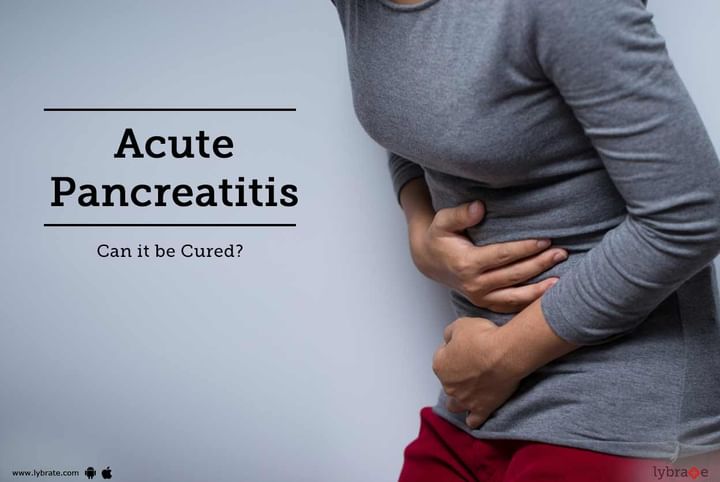Acute Pancreatitis - Can it be Cured?
The inflammation of your pancreas over a short period of time indicates acute pancreatitis, which is a serious health condition. You may experience symptoms such as severe abdomen pain all of a sudden, diarrhoea and feeling of being sick. Acute pancreatitis occurs when there are some problems with certain enzymes in the pancreas. This condition is often associated with gallstones and alcohol consumption.
Treatment
Acute pancreatitis can be cured in a hospital, where you will get monitored for signs of serious issues. In some cases, supportive things like oxygen and fluids are required. Here are the various ways by which the condition can be treated:
1. Fluids: The body may get dehydrated during acute pancreatitis. Fluids are provided via a tube connected to one of the veins of the patient. This is known as intravenous or IV fluid. These fluids may help in the prevention of a problem called hypovolemic shock, which occurs when the amount of blood in your body gets lowered due to a drop in fluids.
2. Nutrition: Diet is usually not restricted for people with acute pancreatitis, but some patients are recommended not to consume solid food for some time. Attempting to digest solid food may cause a strain on the pancreas. You may need to avoid solid food for some days. You should use a feeding tube to get essential nutrients. This process is called enteral feeding and it may involve the insertion of a tube into your stomach via the nose.
3. Oxygen: For ensuring sufficient oxygen supply to your vital organs, you will be supplied with oxygen through the tubes on your nose. The tube may be removed when your condition improves. In some cases, ventilation equipment may be required for assistance to breathe.
4. Painkillers: Acute pancreatitis causes severe abdominal pain and strong painkillers such as morphine may be given to the patient. These may make the patient feel drowsy.
Treatment of underlying cause
After controlling the symptoms, the underlying cause must be treated. They are as follows:
1. Gallstone: When pancreatitis occurs because of a gallstone, you may require a process known as endoscopic retrograde cholangiopancreatography or ERCP. The gallbladder may have to be removed, if necessary.
2. Alcohol consumption: After getting treated for acute pancreatitis and you have recovered from this condition, you should try to avoid alcohol completely. Alcohol may spoil your recovery and the condition might reoccur or the symptoms may reappear. For freedom from alcohol, you may try counselling, joining self-help groups such as Alcoholics Anonymous (AA) or take a medicine which reduces your craving for alcohol.
It is recommended that you visit a doctor immediately after experiencing any slight or severe symptoms of acute pancreatitis. This will help in early diagnosis and the chances of the symptoms getting worse are prevented. If you wish to discuss about any specific problem, you can consult an Endocrinologist.



+1.svg)
